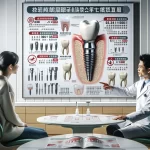Have you ever looked in the mirror and wondered why your once pearly whites have lost their luster? You’re not alone. Teeth discoloration affects people of all ages, with recent studies showing that up to 80% of Americans aged 18-49 wish they had whiter teeth. Understanding the causes of discoloration is the first step towards reclaiming your confident smile.
Understanding Teeth Discoloration
Teeth discoloration occurs when tooth color changes, appearing less bright or white. This dental issue affects people across age groups, impacting self-esteem and social interactions. Discoloration falls into two main categories: extrinsic and intrinsic.
Extrinsic Discoloration
Extrinsic discoloration affects the tooth’s outer layer (enamel) and often results from lifestyle factors:
- Dark beverages: Coffee, tea, red wine, cola
- Tobacco use: Smoking or chewing
- Poor oral hygiene: Inadequate brushing and flossing
- Certain foods: Berries, curry, tomato-based sauces
Intrinsic Discoloration
Intrinsic discoloration occurs within the tooth structure and is typically more challenging to address:
- Genetics: Predisposition to thinner enamel
- Medications: Certain antibiotics like tetracycline during tooth development
- Dental trauma: Internal tooth bleeding from injury
- Aging: Natural enamel wear revealing yellower dentin
Prevention and Treatment
Maintaining a bright smile requires prevention:
- Regular dental check-ups
- Proper oral hygiene
- Limiting stain-causing foods and drinks
For existing discoloration, treatments vary from professional whitening to veneers, depending on cause and severity.
Impact on Oral Health
Discoloration can have long-term effects:
- Increased tooth decay risk
- Potential masking of other dental issues
- Difficulty detecting early signs of decay or gum disease
Understanding your specific type of discoloration is crucial for effective treatment. Consult a dental professional to develop a personalized plan for a healthy, white smile.
Effective Prevention Strategies for Health and Well-being
Dietary Habits for Optimal Health
Maintaining a balanced diet is crucial for preventing various health issues. Here are key strategies:
- Reduce intake of processed foods high in sugar and unhealthy fats
- Increase consumption of fruits, vegetables, and whole grains
- Stay hydrated by drinking water throughout the day
- Limit alcohol consumption to recommended levels
Essential Oral Hygiene Practices
Proper oral care prevents tooth decay and gum disease:
- Use fluoride toothpaste to brush teeth twice daily
- Clean between teeth daily with floss or interdental cleaners
- Rinse with an antimicrobial mouthwash to reduce bacteria
- Replace your toothbrush every 3-4 months or sooner if bristles fray
Lifestyle Changes for Long-term Health
Adopting healthy habits can prevent numerous health problems:
- Engage in regular physical activity, aiming for at least 150 minutes per week
- Quit smoking and avoid exposure to secondhand smoke
- Manage stress through relaxation techniques like meditation or yoga
- Get adequate sleep, typically 7-9 hours for adults
Regular Health Check-ups and Screenings
Preventive care is key to early detection and treatment:
- Schedule annual physical exams with your healthcare provider
- Undergo recommended health screenings based on age and risk factors
- Keep vaccinations up to date
- Discuss family health history with your doctor to identify potential risks
Natural Remedies for Teeth Whitening
While professional treatments offer the most effective results, several natural remedies can help brighten your smile at home. Crunchy fruits and vegetables like apples and carrots act as natural toothbrushes, scrubbing away surface stains. Strawberries contain malic acid, a natural whitening agent, while dairy products high in calcium strengthen tooth enamel. For DIY methods, a paste made from baking soda and hydrogen peroxide can help remove stains, though it should be used sparingly to avoid enamel damage. Oil pulling with coconut oil may improve oral health and have a mild whitening effect. Activated charcoal, while popular, should be used cautiously as it can be abrasive. Before trying any home remedies, consult your dentist to ensure they’re safe for your teeth and won’t interfere with existing dental work.
Professional Whitening Treatments
For more significant results, professional treatments are recommended:
| Method | Description | Cost Range | Duration | Effectiveness |
|---|---|---|---|---|
| In-Office Procedures | High-concentration bleaching gel activated by light/laser | $500-$1000 | 1-2 hours | Immediate, dramatic results |
| Take-Home Kits | Custom-fitted trays with professional-grade gel | $200-$400 | 1-2 weeks | Gradual, significant improvement |
| Over-the-Counter Products | Whitening strips, gels, and toothpastes | $20-$100 | 2-4 weeks | Mild to moderate improvement |
Case Study: Successful Teeth Whitening Treatment
Sarah, a 35-year-old coffee lover, had struggled with yellowing teeth for years. After consulting her dentist, she opted for a combination of in-office whitening and take-home trays. The in-office treatment provided an immediate boost, while the take-home trays allowed her to maintain the results. After six weeks, Sarah reported a significant improvement in her smile’s appearance and a boost in her confidence at work.
Safety and Longevity
Are Teeth Whitening Treatments Safe?
When performed under professional guidance, teeth whitening treatments are generally safe. However, some people may experience:
- Temporary tooth sensitivity
- Gum irritation
- Uneven whitening if there are dental restorations
How Long Does Teeth Whitening Last?
The longevity of whitening results varies:
- In-office treatments: 6 months to 2 years
- Take-home kits: 4 months to 1 year
- Over-the-counter products: 3 to 6 months
Maintenance and good oral hygiene can extend these results.
Teeth Whitening for Children and Teens
Teeth whitening is generally not recommended for children under 14 or teens without consulting a dentist first. This is because:
- Young teeth are still developing and may be more sensitive
- The pulp chamber is larger in younger teeth, increasing the risk of irritation
When to Consult a Dentist
Seek professional advice if you experience:
- Signs of severe discoloration that don’t respond to over-the-counter treatments
- Persistent sensitivity after using whitening products
- Discoloration accompanied by pain or changes in tooth structure
Conclusion
A bright, white smile can significantly impact your confidence and overall appearance. By understanding the causes of teeth discoloration and implementing preventive strategies, you can maintain a radiant smile. Remember that while there are many options for teeth whitening, consulting with a dental professional is crucial to ensure safe and effective treatment tailored to your specific needs.
For more information on oral health and teeth whitening, visit the American Dental Association website or schedule an appointment with your local dentist.
What are the latest advancements in treating teeth discoloration in 2024?
Advances include AI-driven diagnostic tools, bio-compatible veneers, and personalized whitening techniques. Learn more about these innovations in our guide to the future of dental technology.
How does overall health impact teeth discoloration?
Systemic health conditions like diabetes can affect oral health, leading to discoloration. It’s important to consider the link between systemic health and oral hygiene.
Can environmental factors contribute to teeth discoloration?
Yes, factors like water quality and air pollution can play a significant role in tooth coloration. Understanding these influences is key to holistic dental care.
What are the most effective ways to prevent teeth discoloration?
Avoiding staining foods and beverages, maintaining good oral hygiene, and regular dental checkups are vital. Discover more preventive tips in our comprehensive oral health care guide.
Are there any new cosmetic dental procedures for discoloration?
Yes, 2024 has seen advancements in cosmetic dentistry, such as more natural-looking veneers and advanced whitening methods. Explore the latest cosmetic options on our detailed page about dental veneers.







